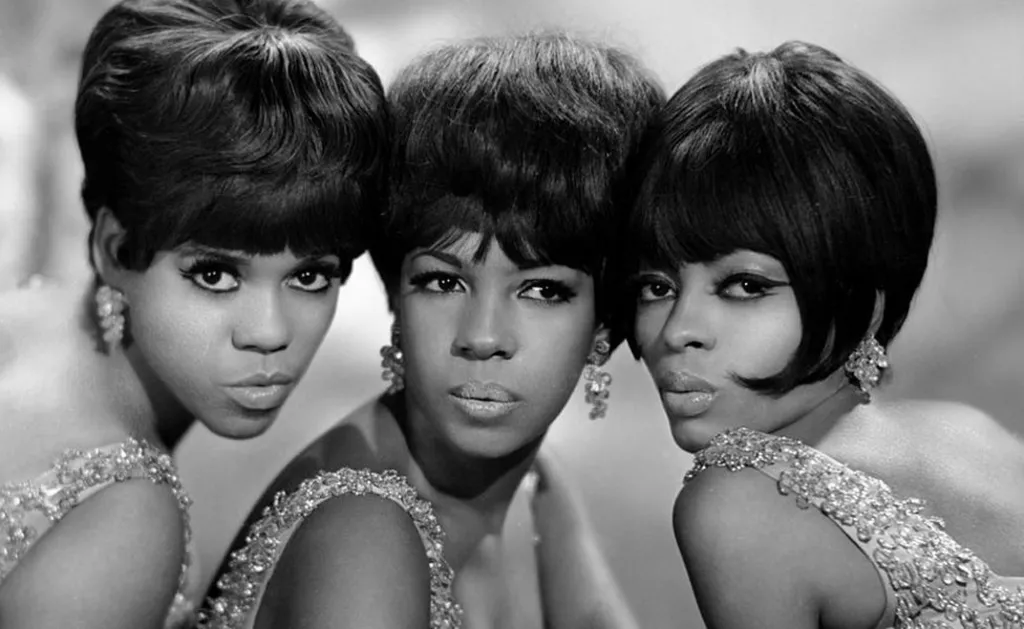Video
About the song

The Supremes – “You Keep Me Hangin’ On”: A Timeless Motown Classic
Released in 1966, “You Keep Me Hangin’ On” by The Supremes remains one of the most enduring tracks from the golden era of Motown. Written and produced by the legendary team of Holland-Dozier-Holland, the song was a major turning point in the career of the group, showcasing their evolution and establishing them as one of the most influential pop acts of the 1960s. In this article, we’ll take a closer look at the history behind this iconic song, its success on the charts, and its lasting impact on music and pop culture.
The Creation of “You Keep Me Hangin’ On”
“You Keep Me Hangin’ On” was penned by the renowned songwriting trio of Brian Holland, Lamont Dozier, and Eddie Holland, who were responsible for many of The Supremes’ biggest hits, including “Where Did Our Love Go” and “Stop! In the Name of Love.” The song’s composition marked a departure from the more conventional pop-soul style that had defined the group’s earlier hits. With a powerful rhythm, catchy melodies, and dramatic vocals from lead singer Diana Ross, “You Keep Me Hangin’ On” introduced a more soulful and emotionally charged sound.
The song’s lyrics convey a feeling of emotional struggle, as the narrator is torn between love and frustration. It’s a song about heartbreak, but it also conveys a sense of determination and strength, making it a timeless anthem for those going through emotional struggles.
The Supremes and the Album – The Supremes – The #1’s
“You Keep Me Hangin’ On” was part of the album The Supremes – The #1’s, a compilation of the group’s chart-topping hits. The song was released as a single and became one of the group’s most commercially successful songs, marking a crucial moment in the band’s career. It was the Supremes’ sixth No. 1 hit on the Billboard Hot 100 and became a signature track that has endured for decades.
The success of the song helped solidify The Supremes’ place in music history. Their smooth blend of pop, soul, and Motown’s signature “sound” won the hearts of millions of fans, and “You Keep Me Hangin’ On” became a defining song of the Motown era.
Chart Success and Recognition
Upon its release, “You Keep Me Hangin’ On” was met with critical acclaim and commercial success. The song quickly climbed to No. 1 on the Billboard Hot 100 chart, where it stayed for two weeks. It also reached No. 1 on the Billboard R&B chart, making it a double success for the Supremes. This achievement was significant as it marked a shift in The Supremes’ musical style, moving away from the more traditional pop sound of their previous hits towards a harder-edged, emotionally charged performance.
Internationally, the song saw success in countries like the UK, where it charted highly as well. It also found its place on the charts in the years that followed, solidifying its status as one of the quintessential songs of the 1960s.
The Song’s Legacy
“You Keep Me Hangin’ On” became more than just a hit single—it became an anthem for generations of listeners. With its captivating melody, dramatic vocals, and empowering message, it remains one of The Supremes’ most popular songs. The track has been widely covered and remains a staple of oldies radio stations and classic music playlists.
Its influence extends beyond the Motown era. The song’s unforgettable rhythm and emotional depth have inspired countless artists across various genres. In 1986, the song was famously covered by Kim Wilde, and her version became a hit in the UK, further proving the timeless appeal of this Motown classic.
The Music Video and Performances
Though The Supremes were not known for the flashy music videos that would later define pop culture, the live performances of “You Keep Me Hangin’ On” became iconic in their own right. Diana Ross’s charismatic stage presence, along with the stunning vocal harmonies of Mary Wilson and Florence Ballard, made their live shows legendary. The Supremes’ performances of this song were filled with emotion and passion, which only added to the song’s compelling appeal.
The group’s live renditions of the song during their performances in the 1960s, particularly during their appearances on television shows like The Ed Sullivan Show, introduced the group to an even wider audience and further cemented their place in music history.
“You Keep Me Hangin’ On” in Modern Culture
The song’s powerful message and unforgettable melody have kept it relevant for decades. In the decades since its release, “You Keep Me Hangin’ On” has been featured in numerous movies, television shows, and advertisements, adding to its status as one of the defining songs of the 1960s. Its ability to resonate with listeners—whether they are hearing it for the first time or rediscovering it years later—ensures that it remains a beloved classic.
Moreover, the song’s enduring popularity highlights the lasting influence of Motown and The Supremes on pop music and culture. The Supremes played a pivotal role in shaping the sound of 1960s America, and “You Keep Me Hangin’ On” is one of the most enduring examples of their contribution.
Conclusion: A Classic That Keeps Us Hanging On
“You Keep Me Hangin’ On” by The Supremes is a timeless classic that continues to captivate audiences with its emotional intensity and powerful message. From its creation by Holland-Dozier-Holland to its continued impact in modern culture, the song has become a symbol of the Motown era’s ability to blend emotional depth with popular appeal. As one of The Supremes’ most enduring songs, it’s clear why this track continues to be a favorite for listeners old and new.
For those who love the sound of the ’60s, or simply want to revisit one of the most iconic hits of all time, “You Keep Me Hangin’ On” is a must-listen. Its unforgettable melody, compelling lyrics, and timeless emotional resonance ensure that it will continue to inspire listeners for generations to come.